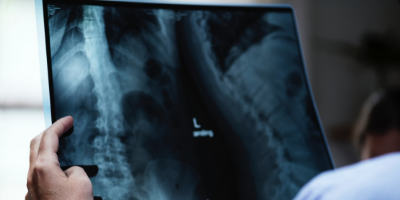Telling patients to 'fight' cancer puts them under pressure
Published 4 Oct 2018 • Updated 23 May 2019 • By Josephine O'Brien

Cancer patients should not be told to “fight” their disease because doing so puts them under “exhausting pressure”, Macmillan Cancer Support has said.

The charity warned that framing cancer in terms of a battle leaves patients feeling guilty for admitting fear and often prevents them planning properly for their death.
Macmillan said thousands of sufferers were unnecessarily dying in hospital rather than their own home each year because of a “gulf in communication” towards the end of life.
Experts last night called for a cultural change around cancer so patients no longer feel compelled to put on a brave face.
Research commissioned by the charity reveals nearly two thirds of sufferers never talk to anyone about their fears of dying due to the pressure to see themself as a “fighter”.
Meanwhile 28 per cent reported feelings of guilt if they cannot stay positive about their disease.
Adrienne Betteley, end-of-life care advisor at Macmillan, said: “We know that “battling” against cancer can help some people remain upbeat about their disease, but for others the effort of keeping up a brave face is exhausting and unhelpful in the long-term."
The report said the pressure to stay positive and support people to “fight” cancer was one of the biggest barriers to holding conversations about dying, even in patients who had already received a terminal diagnosis.
“We need to let people define their own experiences without using language that might create a barrier to vital conversations about dying,” said Ms Betteley.
“For health and social care professionals, there is often a fear that the person is not ready to talk about dying.
“We know, however, that making plans while receiving treatment allows people with cancer to retain a sense of control during an emotionally turbulent time.”
What do you think about this? Do you think it is time to change the language surrounding cancer? Many people on Twitter talked about how you "don't lose a battle against a heart attack" so why do we use this language with cancer?
Telegraph.co.uk

 Facebook
Facebook Twitter
Twitter






